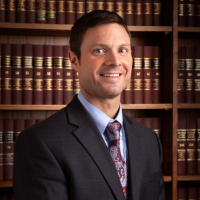Mendon DUI-DWI Lawyer, Michigan
Sponsored Law Firm
-
 x
x

Click For More Info:
-
The Lockwood Legal Group, LLC.
26418 Olympic Club Drive South Bend, IN 46628» view mapAccident & Injury, Criminal, and Divorce Justice is blind
I represent clients like you to obtain justice on their behalf. Justice is not a commodity, it's a right.
800-457-7830
Wesley Johnson Todd
✓ VERIFIEDDUI-DWI, Criminal, Bankruptcy, Divorce & Family Law
Wesley Todd originally joined the firm as an intern in 2008. He has been a shareholder of the firm since 2020. He was born in Kalamazoo, Michigan and ... (more)
FREE CONSULTATION
CONTACT James Lockwood South Bend, IN
James Lockwood South Bend, IN Practice AreasExpertise
Practice AreasExpertise

